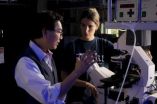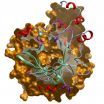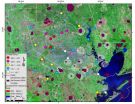Researcher gives 'F' to multiculturalism education
Concordia professor calls for better teacher training
2010-09-29
(Press-News.org) Montreal September 28, 2010 – Multicultural education in classrooms has failed to produce a deeper understanding across cultures, according to a Concordia University researcher. Education professor Adeela Arshad-Ayaz blames teacher training for failing to address issues of diversity and equity. Her recent presentation at the Congress of the Humanities and Social Sciences, in Montreal, calls for an alternative approach.
"The way we currently teach multiculturalism fails to bring divergent groups together," says Dr. Arshad-Ayaz. "Our present approach is alienating minority groups and failing to engage teachers from dominant groups by not validating the world view of both groups and bringing meaningful dialogues into the classroom".
Professor Arshad-Ayaz suggests that mere recognition of "other" cultures is clearly not enough and sometimes even divisive, creating feelings of guilt and perhaps even oppositional resistance from students. Rather, students need to be engaged in active learning about local and global processes that create inequality. Instead of just looking at differences in culture, Arshad-Ayaz proposes the intercultural curriculum also integrate discussion of global politics, environmental issues, local, regional and global agreements and treaties that are linked to creation of social class and power.
"We need to remember the end goal, which is to create a more equitable society and more equitable world," says Arshad-Ayaz. "Only by addressing issues of justice and equity do students from both dominant and non-dominant groups become engaged. This discourse will lead to social empathy which is a good beginning to understanding the issue of difference and diversity."
INFORMATION:
On the web:
Concordia Department of Education: http://doe.concordia.ca
END
ELSE PRESS RELEASES FROM THIS DATE:
2010-09-29
CINCINNATI—Firefighters are exposed to potentially dangerous levels of ultrafine particulates at the time they are least likely to wear protective breathing equipment. Because of this, researchers believe firefighters may face an increased risk for heart disease from exposures during the fire suppression process.
Coronary heart disease is the No. 1 killer of American firefighters, with many of these incidents taking place during or just after a firefighting incident. Researchers say exposure to these harmful ultrafine air particulates could predispose firefighters to ...
2010-09-29
PHILADELPHIA (September 28, 2010) – Scientists at the Monell Center have used a well-known example of individual differences to identify a genetic contribution to the sense of smell.
Most people detect a distinct sulfurous odor in their urine shortly after eating asparagus. However, there are some who seemingly do not notice the unpleasant odor.
Up until now, it has been unclear whether this is because these individuals do not produce the odor or because they cannot smell it.
Addressing this mystery from several angles, scientists from the Monell Center first used ...
2010-09-29
HIV-infected individuals who begin antiretroviral therapy (ART) soon after acquiring the virus may have stronger immune responses to other pathogens than HIV-infected individuals who begin ART later, a new study from the National Institutes of Health has found. This finding suggests that early initiation of ART may prevent irreversible immune system damage and adds to the body of evidence showing significant health benefits from early ART.
Scientists from the National Institute of Allergy and Infectious Diseases, part of NIH, measured the quantity and qualities of B cells ...
2010-09-29
Dairy farmers can greatly reduce ammonia emissions from their production facilities by injecting liquid manure into crop fields below the soil surface, according to research by the U.S. Department of Agriculture (USDA).
These findings, which resulted from a study conducted by soil scientist April Leytem and agricultural engineer David Bjorneberg with USDA's Agricultural Research Service (ARS), could help Idaho dairy farmers increase nitrogen capture in the soil and protect air quality from agricultural ammonia emissions. ARS is USDA's principal intramural scientific ...
2010-09-29
DURHAM, N.C. – Duke University bioengineers have not only figured out a way to sneak molecular spies through the walls of individual cells, they can now slip them into the command center -- or nucleus -- of those cells, where they can report back important information or drop off payloads.
Using silver nanoparticles cloaked in a protein from the HIV virus that has an uncanny ability to penetrate human cells, the scientists have demonstrated that they can enter the inner workings of the nucleus and detect subtle light signals from the "spy."
In order for these nano-spies ...
2010-09-29
A study conducted at Copenhagen University Hospital showed that treatment of rheumatoid arthritis (RA) with disease modifying antirheumatic drugs (DMARDs), glucocorticoids, biologic agents, or a combination of agents significantly reduced radiographic evidence of joint destruction, with a relative effect of 48%% as compared with placebo. A direct comparison between the combination of a biologic agent plus methotrexate and the combination of 2 DMARDs plus initial glucocorticoids revealed no difference. Study findings are published in the October issue of Arthritis ...
2010-09-29
Social rejection isn't just emotionally upsetting; it also upsets your heart. A new study finds that being rejected by another person makes your heart rate drop for a moment. The study is published in Psychological Science, a journal of the Association for Psychological Science.
Research has shown that the brain processes physical and social pain in some of the same regions. Bregtje Gunther Moor, Eveline A. Crone, and Maurits W. van der Molen of the University of Amsterdam and Leiden University in the Netherlands wanted to find out how social pain affects you physically. ...
2010-09-29
Results from a 12-month multi-center clinical trial did not show therapeutic benefit of abatacept over placebo in patients with non-life threatening systemic lupus erythematosus (SLE). Abatacept failed to prevent new disease flares in SLE patients tapered from corticosteroids in an analysis where mild, moderate and severe disease flares were evaluated together. Full details of the phase IIb clinical trial are published in the October issue of Arthritis & Rheumatism, a journal of the American College of Rheumatology (ACR).
The ACR estimates that 161,000 to 322,000 adults ...
2010-09-29
The Structural Genomics Consortium (SGC), an international public-private partnership that aims to determine three dimensional structures of medically important proteins, announced today the release into the public domain of its 1000th high resolution protein structure.
The 1000th structure – known as JmjD2C – belongs to a class of proteins involved in epigenetic signalling, a key research area for the SGC. Epigenetics is the study of inherited changes in gene expression caused by proteins such as JmjD2C which 'switch' genes on or off. It is believed that a better understanding ...
2010-09-29
HOUSTON, Sept. 28, 2010 – A large section of northwestern Harris County – particularly the Jersey Village area – is sinking rapidly, according to a University of Houston (UH) geologist who has analyzed GPS data measuring ground elevation in the Houston area.
Some points in Jersey Village are subsiding by up to 5.5 centimeters (about 2 inches) a year, said Shuhab Khan, an associate professor of geology at UH. Khan, along with UH geology professor Kevin Burke and former Ph.D. student and UH alumnus Richard Engelkemeir, studied a decade's worth of detailed GPS data measuring ...
LAST 30 PRESS RELEASES:
[Press-News.org] Researcher gives 'F' to multiculturalism education
Concordia professor calls for better teacher training


